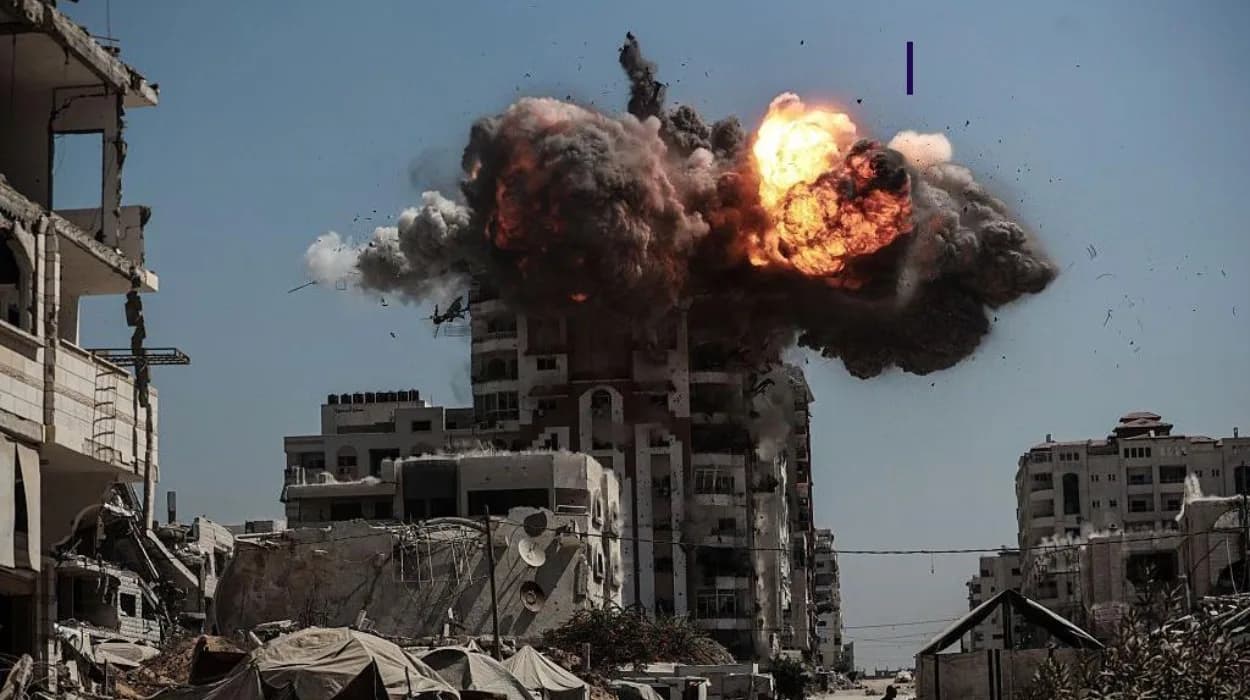Nine Palestinians were killed and many others injured in an
intensified Israeli military assault on Gaza City, marking a sharp escalation
in the ongoing conflict. The bombardment has caused widespread casualties and
devastation, with international calls for an immediate ceasefire growing
louder.
Intensified Assault on Gaza City Causes Heavy Casualties
As reported by Amira Hass of Haaretz, the Israeli military
launched a significant escalation in offensive operations over Gaza City,
resulting in the deaths of nine Palestinians and inflicting injuries on many
more civilians, including women and children. The attacks were described as the
heaviest in recent weeks, with aerial bombardments targeting densely populated
neighbourhoods. Israeli Occupation Forces (IOF) stated they were targeting
militant infrastructure but civilian casualties have been reported extensively.
Michael Safi of The Guardian detailed eyewitness accounts
from Gaza City, where relentless Israeli airstrikes turned residential areas
into rubble. Hospitals are overwhelmed with casualties, and shortages of
medical supplies have exacerbated the humanitarian crisis. Many residents
expressed despair and fear, with infrastructure destruction cutting water and
electricity. The Gaza Health Ministry confirmed the death toll and raised
alarms over the deteriorating situation for injured patients.
Reactions from International Community and Humanitarian Agencies
According to a report by the Associated Press with
contributions from Azmat Khan, United Nations officials and humanitarian
organisations strongly condemned the violence, calling for immediate restraint
and protection of civilian lives. The UN’s humanitarian coordinator for the
occupied Palestinian territories emphasised the urgent need for humanitarian
access to treat the wounded and deliver necessary aid. Several governments
issued statements urging both sides to avoid further escalation.
The International Committee of the Red Cross (ICRC) highlighted their concern over the impact on civilian populations, with spokesperson Christine Beerli stating,
“The sustained bombardment is causing unimaginable suffering. The protection of civilians and adherence to international humanitarian law must be paramount.”
Israeli Military’s Position and Strategic Aims
Israeli officials, including Defence Minister Yoav Gallant,
reiterated that the operations aim to dismantle militant groups responsible for
rocket attacks into Israel. IDF spokesperson stated that military measures are
calibrated to minimise civilian harm but underscored the difficulty due to
militants operating within civilian areas. Security sources explained the
offensive as part of a broader strategy to degrade Hamas’ capabilities.
Conditions on the Ground and Impact on Gaza Civilians
As reported by Christiane Amanpour of CNN, the residents of
Gaza City are enduring severe psychological and physical distress. Schools,
homes, and health centres have been hit, disrupting daily life and displacing
many families. The Gaza Ministry of Health warned that continued bombardments
risk collapsing the already fragile health system. Human rights groups warned
of possible violations in the conduct of hostilities.
Ambulance drivers and frontline medical workers described
harrowing scenes, with many hospitals forced to operate without power backups
due to ongoing infrastructure damage. Uneven access to humanitarian corridors
has left many injured people without timely medical attention.
Wider Context and History of Escalation
The current surge in violence follows a series of
tit-for-tat attacks between Hamas militants and Israeli forces. Analysts from
Al Jazeera pointed out that the fragile ceasefires have repeatedly broken down,
with both sides accusing the other of provocations. This latest assault appears
to be among the most severe since a ceasefire was agreed earlier in the year.
Efforts by mediators, including Egypt and Qatar, to broker
peace remain stalled. Regional powers have expressed concern over the potential
spillover into neighbouring areas.
International Calls for Dialogue and Long-Term Solutions
United Nations Secretary-General António Guterres appealed for an urgent ceasefire and for renewed dialogue to end the cycle of violence. He urged all parties to
“put the protection of civilians above all else and to take immediate steps towards a sustainable peace.”
Humanitarian agencies continue to mobilise resources, but access remains severely constrained by ongoing hostilities. The international community’s stance increasingly leans towards demanding accountability and a halt to indiscriminate attacks in Gaza.
